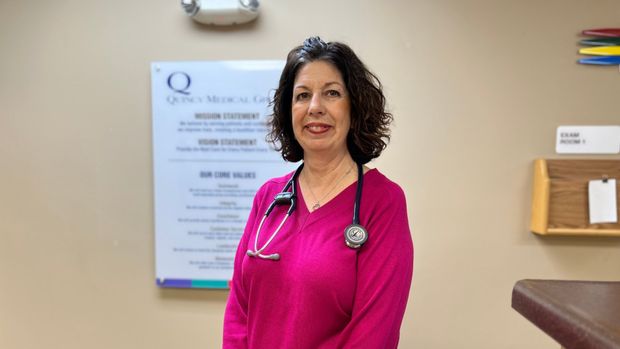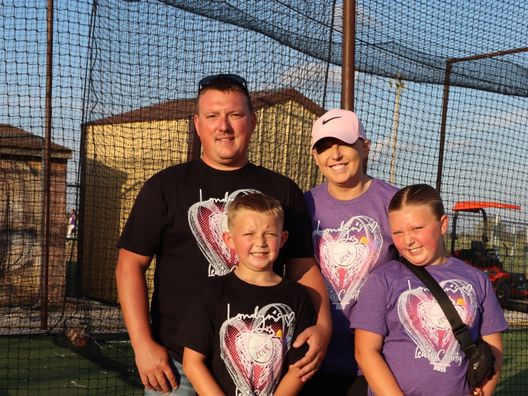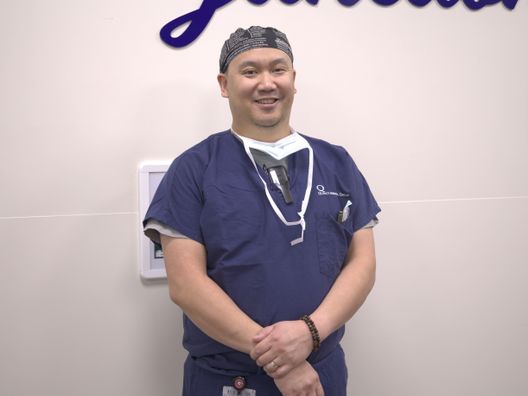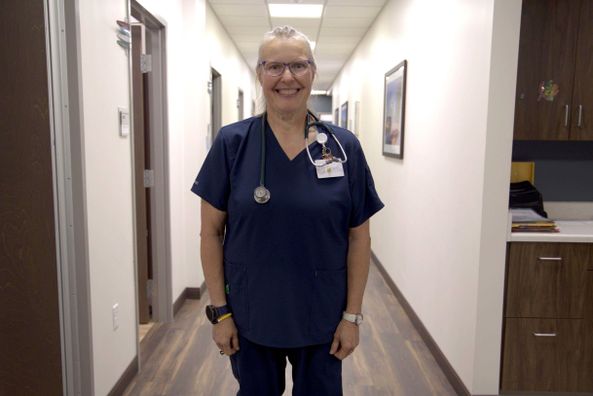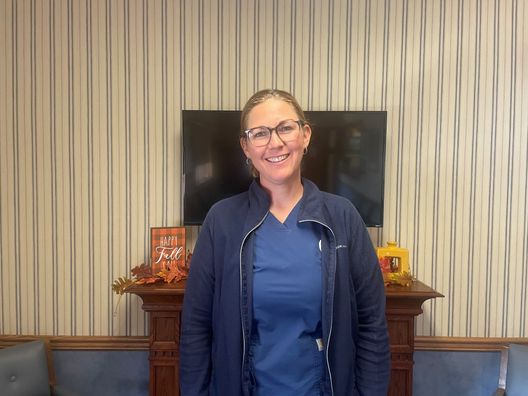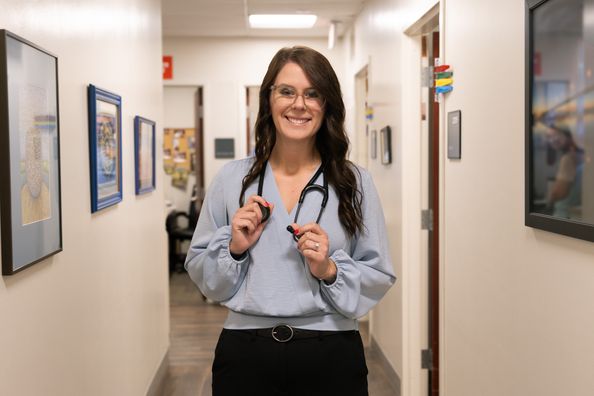Imagine two people, side by side, facing the same health concerns. They might both have diabetes or asthma, but their chances of getting sick and even surviving these illnesses are different, often based solely on their race or ethnicity.
This Black History Month, we cannot ignore the concerning reality of health disparities. Numbers from the Centers for Disease Control and Prevention show that racial and ethnic minority groups throughout the United States experience higher rates of illness and death across a wide range of health conditions, including diabetes, hypertension, obesity, asthma, and heart disease, when compared to their white counterparts. Additionally, the life expectancy of non-Hispanic/Black Americans is four years fewer than that of white Americans.
Locally, Luanna Flagg and Marissa Radcliffe, Community Health Workers at Quincy Medical Group (QMG), are actively addressing these disparities. In collaboration with the Quincy ARISE Coalition —comprising QMG, YWCA Quincy, Bella Ease, and the Adams County Health Department — Flagg and Radcliffe aim to build trust, break down barriers, and empower individuals to manage their health.
Though a relatively new concept for the organization, the roles of Community Health Workers were carefully considered. Flagg, who was involved in that process, emphasized the importance of lived experience and genuine care for the community.
“We needed individuals who not only understood the challenges but also who truly cared about making a difference. There was a lot of research to support the value of having Community Health Workers out in the community,” said Flagg.
Flagg and Radcliffe, through their outreach efforts, actively bridge healthcare access gaps. They believe that genuine connection is the key to progress.
“We engage in open conversations, ensuring everyone knows we’re here without judgment. We welcome individuals regardless of their backgrounds or actions; it’s about fostering a supportive environment,” said Flagg.
Each conversation builds trust, and even small victories have a significant impact. Radcliffe shared a personal story, “I have someone who calls me regularly. She doesn’t have a support system, but I told her, ‘I’m your community health worker, I’m here for you.’ After several conversations, she finally took the first step and called QMG to schedule an appointment. That’s a win.”
Health disparities cross many concerns, so that connection and trust, they say, are important to seek the root issue or concern.
Flagg shared, “One disparity I’ve seen and researched is maternal health. Black women are experiencing higher rates of mortality compared to other racial groups. In many ways, there’s a lack of resources being shared in certain communities of color.”
She added, “This disparity leads to increased prevalence of diseases, such as higher rates of sexually transmitted infections (STIs), obesity, and hypertension. Many individuals are hesitant to seek medical attention due to fear. They not only lack access to vital information but also feel uncomfortable entering spaces where they don’t see enough representation of people who look like them.”
Since they started their roles in the summer of 2023, they’ve been involved in various activities to help address these concerns. They took part in events like the Multi-Agency Resource Center (MARC) to help people access healthcare and resources like transportation vouchers and air conditioners. They teamed up with the Illinois Breast and Cervical Cancer Program (IBCCP) and Hancock County Health Department to provide free mammograms to Illinois residents without health insurance or with high-deductible plans.
They also organized an HIV/AIDS Awareness program in collaboration with the Adams County Health Department, offering free testing. Additionally, they partnered with community organizations to create opportunities for discussions on topics like nutrition, preventive care, cancer screening, opioid use, and mental health.
Although inequities in access to and use of healthcare contribute to disparities in health, inequities across broader social and economic factors that drive health — often referred to as social determinants of health — also play a major role.
“One major issue we’re focused on is homelessness in our community, which hits close to home for me because I’ve experienced it myself. While not recently and not to the extent of sleeping outside, I understand the struggles of not having stable housing,” Radcliffe shared. “It’s heart-wrenching to see people enduring the elements without shelter, especially those who still manage to work every day but end up sleeping in parks because they can’t afford rent. Some may argue it’s a choice, but for many, it’s the only way they can survive due to financial constraints. The struggle to balance paying for utilities versus maintaining shelter is a harsh reality.”
Radcliffe emphasizes understanding the circumstances individuals are in to effectively support them.
“It’s not just about telling them what to do but also supporting them in achieving it,” she said.
Their dedication goes beyond professional duties; it is rooted in a genuine desire to uplift and empower those they serve. From providing a listening ear to advocating for systemic change, Flagg and Radcliffe embody the spirit of compassion and resilience.
“I tell people, I don’t care where you go get the help. Get the help. Because what I care about as your Community Health Worker is your health, because caring about your health is caring about you,” Radcliffe said. “One of the things that I always tell people is what we do is not hard work, it’s heart work. And even through the challenges, our hearts are in it.”
To reach out to our Flagg or Radcliffe, call (217) 222‑6550, ext. 3418.
Health Topics:


